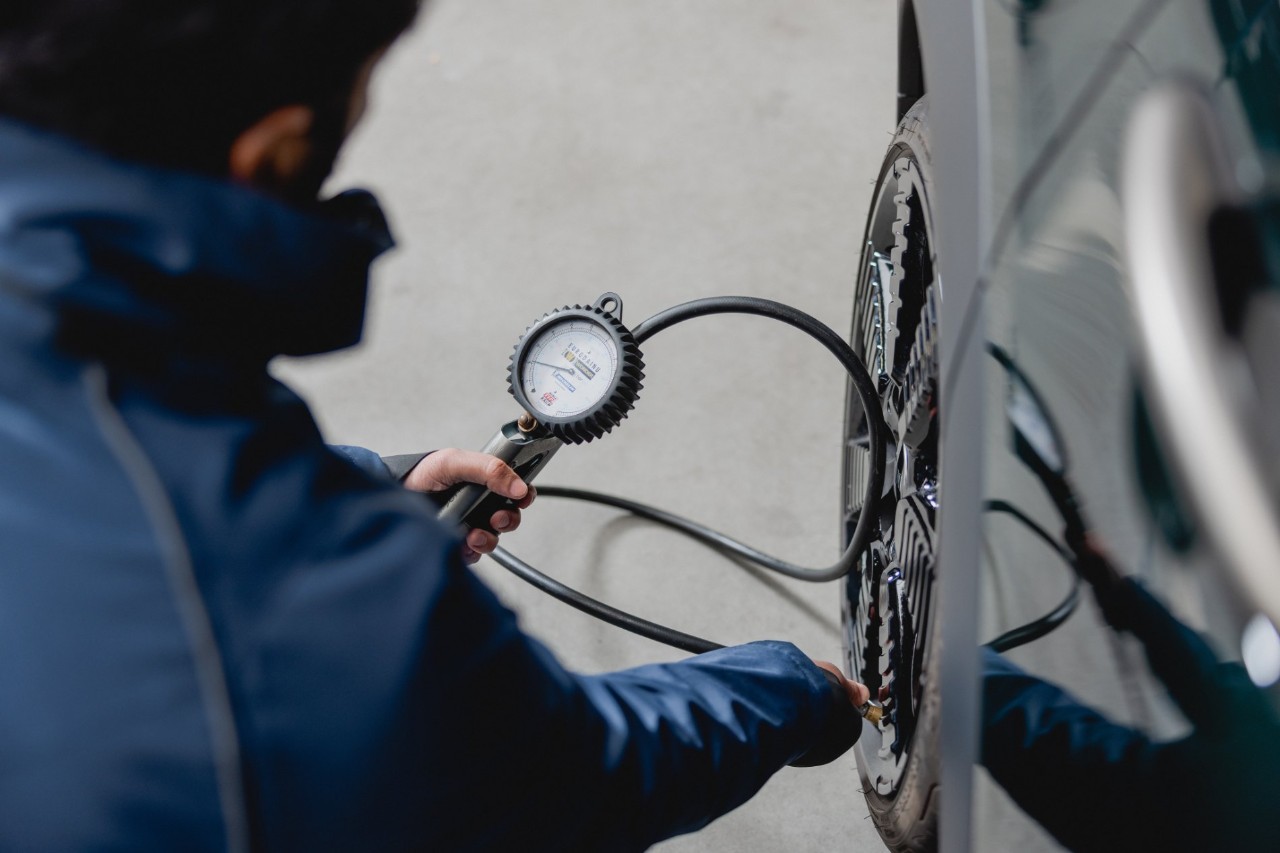Compared to an internal combustion engine vehicle, the working components of a battery electric vehicle (EV) are remarkably simple. There’s no complicated engine. There’s often no gearbox. And everything’s connected with wires, rather than complex hydraulic linkages.
But this doesn’t mean you don’t have to service an EV to keep it in good working order. It’s just that different elements might require your attention.
In this article, we’ll take a look at the kinds of maintenance which are particularly relevant for electric vehicles.
What to consider
There is a common misconception surrounding EV tyres. This is that, because of the heavier weight of an EV compared to a petrol or diesel equivalent, the wear rate of tyres will be higher.
This could be true if EVs used the same tyres as other vehicles. But in most cases, they don’t. Tyre brands are increasingly turning to new constructions and compounds which better suit EV driving. They have thicker, stronger sidewalls, low rolling resistance tread and more – all to ensure they remain strong and last a long time. As with most new developments, these specialist tyres come at a higher cost; though they don’t wear out as fast, the running costs are marginally higher. But when you consider the lifetime value of an electric vehicle, the cost is negligible.
It therefore pays to check your tyres regularly. Make sure they’re running at the right pressure, with nothing stuck in the tread. This way, you’ll get the maximum lifespan out of them.
The unfortunate truth is, with a relatively small sample size and history, judging the repair costs of EVs is difficult. Currently, damage costs tend to be higher than ICE vehicles, but this is heavily influenced by EVs still currently being a luxury product, not the everyday norm. This will change as more engineers and mechanics train on EV maintenance and repair, models become more prevalent and common EV challenges become more understood.
So, expect repair costs to fall. We just don’t know how much by, or how quickly just yet.
Though electric vehicles are technologically very different to their ICE counterparts, servicing them doesn’t require a huge change in understanding. In fact, it’s much easier to keep an EV operating at optimal levels, with fewer parts to break and a much more resilient battery-powered engine to keep things running smoothly.
We understand that unforeseen maintenance costs can be a determining factor for businesses looking to embrace EVs. That’s why we offer to cover this for you, allowing your vehicle to be covered for all maintenance, repairs, servicing and breakdown recovery. It’s one less thing for you to worry about.
Talk to our experts



